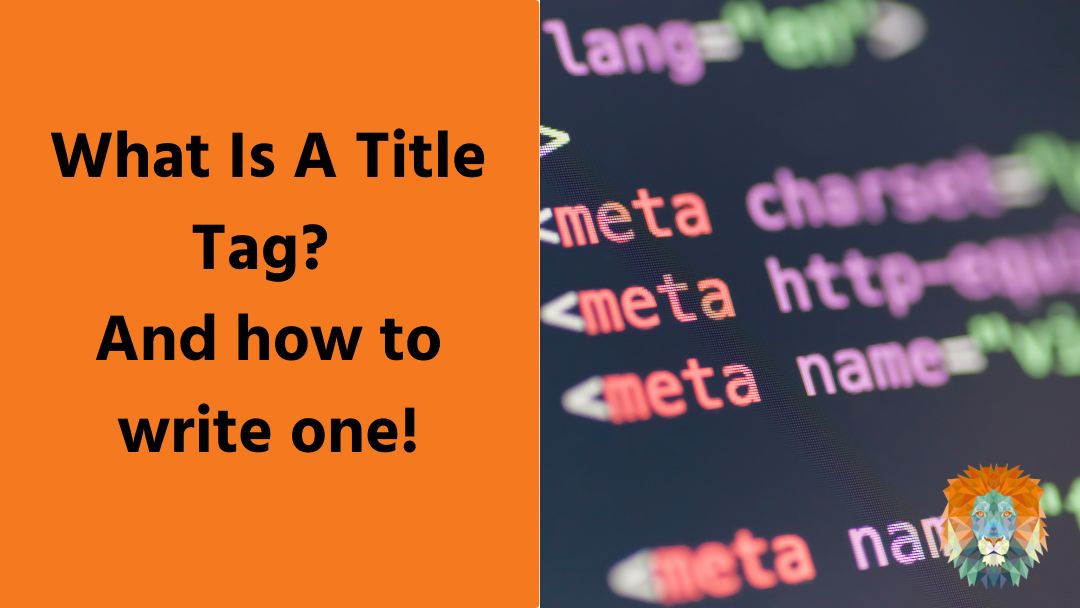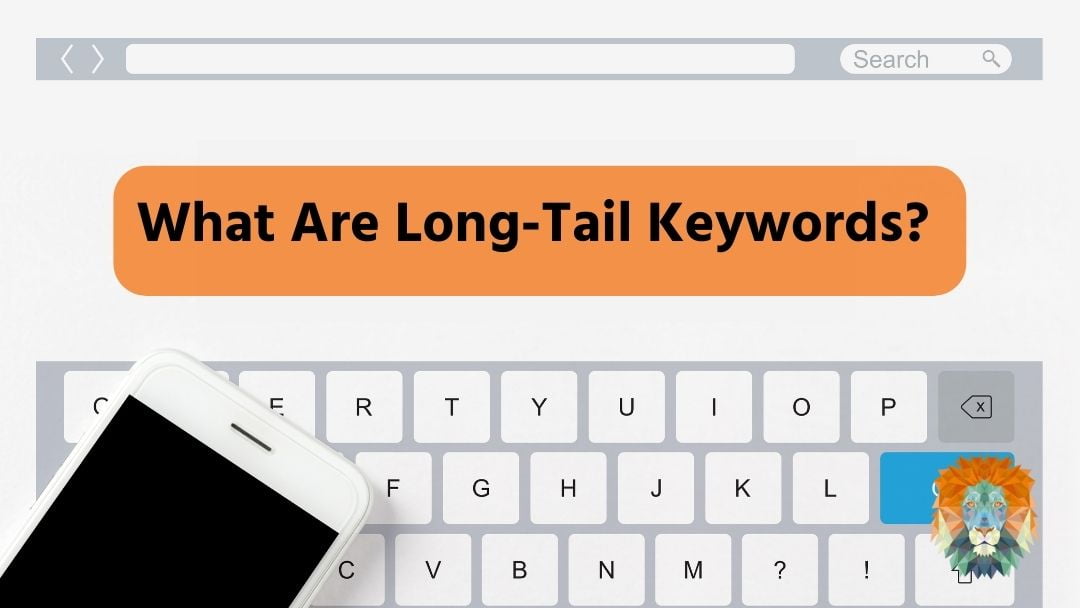A title tag is an HTML element that specifies your webpage’s title, appearing in search engine results and browser tabs. It’s essential for SEO and user experience, influencing click-through rates and search rankings. To write an effective title tag, keep it under 60 characters, place primary keywords near the beginning, and ensure each page has a unique title. Avoid keyword stuffing and misleading content. Craft compelling, accurate titles that reflect your page’s content and incorporate your brand name. Remember to optimise for different platforms, as character limits may vary. By mastering title tag creation, you’ll enhance your website’s visibility and attract more targeted traffic.
Key Takeaways
Optimise title tags for different platforms, considering varying character limits and user behaviour across search engines and social media.
A title tag is an HTML element that specifies a web page’s title and displays in search results and browser tabs.
Title tags are crucial for SEO, helping search engines understand page content and improving click-through rates.
Effective title tags should be under 60 characters, include primary keywords, and accurately reflect page content.
Avoid common mistakes like keyword stuffing, duplicate titles, and neglecting to include your brand name.
Understanding Title Tags
In light of the growing importance of search engine optimisation, understanding title tags is essential for any website owner or content creator. A title tag is an HTML element that specifies the title of a web page. It’s the text you’ll see displayed on search engine results pages (SERPs) and in the browser’s title bar or tab.
On-site SEO optimisation is critical for improving visibility and rankings, with title tags being a key element in this process. Properly optimised title tags can meaningfully impact click-through rates and overall search performance.
Title tags play a critical role in both user experience and SEO. They provide a concise summary of your page’s content, helping search engines understand what your page is about. When you craft an effective title tag, you’re more likely to rank higher in search results and attract clicks from potential visitors.
You’ll find title tags in the section of your HTML code, typically formatted as . While they’re not visible on the actual page, they’re the first thing users see in search results.
That’s why it’s essential to create compelling, accurate, and keyword-rich title tags.
Importance for SEO
Title tags frequently serve as one of the most important elements for on-page SEO. They’re often the first thing search engines and users encounter when browsing search results, making them essential for both visibility and click-through rates.
When you optimise your title tags, you’re fundamentally telling search engines what your page is about, helping them index your content accurately. For lawyers, effective title tags can greatly improve online visibility and attract potential clients, especially considering that 75% of users never scroll past the first page of search results.
Well-crafted title tags can greatly boost your search engine rankings. They contribute to your overall SEO strategy by incorporating relevant keywords and accurately describing your page’s content. This helps search engines understand your page’s context and relevance to specific queries.
Additionally, title tags play a significant role in user experience. A compelling title tag can entice users to click on your link, increasing traffic to your site.
Best Practices for Writing
Crafting effective title tags consistently requires adherence to several best practices. First, aim to keep your title tags under 60 characters to ensure they display fully in search results. Include your primary keyword near the beginning of the tag to maximise its impact on search rankings. Make certain each page on your site has a unique title tag to avoid confusion for both search engines and users. Incorporating long-tail keywords can help target specific user intents and improve your chances of ranking for less competitive phrases.
When writing your title tag, focus on accurately describing the page’s content while enticing users to click. Use action words and compelling language, but avoid clickbait tactics that might mislead readers. If possible, incorporate your brand name at the end of the title tag, especially for your homepage and main landing pages.
Consider the user’s search intent and try to match it with your title tag. Use numbers or lists when appropriate, as they often attract attention in search results.
Don’t forget to capitalise important words, following standard title case conventions. Regularly review and update your title tags to ensure they remain relevant and effective, especially if you’ve made significant changes to your page content.
Benefits Of Using Title Tags
Title tags are an important part of optimising a website for search engines. When used properly, they can help improve the visibility and ranking of your website. The benefits of using title tags include increased organic search engine results pages (SERPs) rankings, improved user experience, better indexing by search engines, and higher click-through rates.
From an end-user perspective, having descriptive title tags also clarifies what information can be found on each page when scanning through SERPs or navigating a website. On average, webpages without optimised titles confuse visitors with generic words that do not accurately reflect the topic being presented; leading them away from engaging further with your website’s content. As such, including appropriate titles lets visitors quickly identify which hyperlinks lead to valuable resources that meet their needs. This creates a positive experience for viewers while improving SEO performance – making title tag optimisation a win-win situation!
Differences Between Title Tags And Headings
Title tags and headings are two elements of SEO that can have a major impact on the visibility, ranking and click-through rate of webpages. Although both title tags and headings help to structure website content for search engines, they serve different functions.
Title tags are HTML elements that appear in the page’s source code and provide information about the contents of that particular page. They usually appear at the top of the browser window as part of the SERP (Search Engine Result Page) listing or within a tab or bookmark in browsers such as Google Chrome or Safari. Title tags should contain relevant keywords related to their corresponding pages so that people searching for those terms will be more likely to find them. Additionally, title tags must be no longer than 60 characters including spaces because anything over this limit may get truncated by search engine crawlers.
Headings, also called H1 through H6 tags, break up long text sections into smaller parts that are easier for readers to digest quickly. Headings help organise content into logical groupings which make it easier for search engine algorithms to understand what each webpage is about when indexing it for relevancy results. Furthermore, heading tags should include important keywords related to the topic being discussed and use variations on these words throughout all levels of subheadings if possible – though keyword stuffing should be avoided!
In summary, while title tags carry weight with search engines regarding positioning in organic search results due to their ability to communicate relevancy signals, headings play an important role in helping readers navigate web pages and comprehending their overall message.
Length Of A Title Tag
Title tags are key to search engine optimisation (SEO). They form part of the HTML code used to describe each page’s content. Title tags appear in two places: as the title for listings on search engine results in pages and at the top of browser windows when a user visits your website. The length of a title tag can affect how easy it is for users to identify what content they will find if they click through from the SERP or open up their browser window, so it’s important that you get yours just right.
The optimal length for a title tag should not exceed 60 characters, including spaces. This ensures that all words within your title are indexed by Google, with no information being cut off due to character limit restrictions. Remember that more than 50% of searches occur on mobile devices where titles may be truncated further due to smaller screens; therefore, keeping titles short helps ensure that all relevant information appears in full view. Furthermore, shorter titles help make them easier to read quickly and clearly understand what type of content awaits users who click through to your site.
Creating The Right Tone In A Title Tag
Creating the right tone in a title tag is essential for SEO success. Title tags are an important tool to help search engines understand the content of a website, and they can also be used to create a certain atmosphere for your visitors when they land on the page. Here are four tips for crafting effective title tags:
- Keep it short – Your title should not exceed 60 characters, as Google will truncate anything longer.
- Use relevant keywords – Include words that accurately describe what’s on the page, so users know what to expect when they click through from search engine results pages (SERPs).
- Make it readable – Select words that flow together logically and make sense to readers, even if you have to deviate from keyword best practices slightly.
- Add emotional appeal – Try using powerful adjectives, catchy phrases or even numbers to evoke emotion and to draw attention and encourage clicks.
When creating a title tag, it is important to balance including targeted keywords while maintaining readability and emotional resonance with potential visitors. To ensure you get this balance right, take some time to brainstorm ideas before settling on one final version of your title tag. If done correctly, your carefully crafted title tag should entice searchers and engage readers alike.
How Do I Write A Good Title Tag?
So the question is, how do you write a good title tag? One that meets the demands of Google and lets users know exactly what they can expect from your page? A few best practices for title tags are:
Keep It Short
Try to keep your title tags between 50 and 60 characters, and definitely no longer. This way they won’t get cut off in search engine results pages. You might have to get creative to do this – including using symbols like & instead of and, and removing your brand name from the title tag to get your message across.
Make it Unique
Unique content is always a win with Google, and that goes as far as your title tags. Unique titles help both search engines and users understand what your page is about, and it may influence readers to click onto the page.
Don’t Repeat Yourself
Alongside being unique, make sure you aren’t repeating yourself with your title tags. The job of a title tag is to tell Google (and users) what that specific page is about. So your pages should all have different title tags. Avoid using boilerplate or repetitive title tags, as this can harm your SEO. Use terms and language that is specific to that page for the best results.
Target One Keyword
In a lot of content we say target 2 or 3 keywords to get the best results, but in title tags it’s the opposite. Choose one primary keyword to focus on, and make sure it features in your title tag. Using too many keywords in such a short space can confuse users and lead Google to think you’re keyword stuffing.
Keep It Relevant
Google does its best to provide users search results that match the intent of their search. So a page with a title tag that just says ‘Home page’ really isn’t going to do you any favours. Make sure each title tag is relevant to the page and gives something unique for readers, enticing them to click and providing Google with the information it needs to serve your page to the right audience.
Common Mistakes to Avoid
Despite the significance of title tags, many website owners fall into common pitfalls when creating them. One frequent mistake is crafting overly long titles that get truncated in search results, potentially cutting off essential information. You’ll want to keep your title tags under 60 characters to guarantee they display fully.
Another error is keyword stuffing, where you cram multiple keywords into the title tag in an attempt to rank for various terms. This practice not only looks spammy to users but can also lead to search engine penalties. Instead, focus on including your primary keyword naturally.
Neglecting to include your brand name is another oversight. Your brand helps users recognise your content and builds trust. However, don’t place it at the beginning of every title tag, as this can push more important information to the end.
Duplicate title tags across different pages confuse search engines and users alike. Each page should have a unique, descriptive title that accurately reflects its content.
Examples Of Good And Bad Title Tags
Good Title Tags
Below are some examples of title tags that would entice the user to click. If you are targeting a specific location including this will also help.
- “High-Quality Home Furnishings for Every Room”
- “Buy the Best Outdoor Gear for Your Next Adventure”
- “Best-Rated Beauty Products for Every Skin Type”
- “Get Professional Carpet Cleaning Services Today”
- “The Latest Trends in Men’s Fashion”
- “Organic Vegetables Delivered to Your Door”
- “Organic Skincare Solutions For Healthy Skin”
- “Unique Jewelry Pieces For Every Occasion”
- “Affordable Home Decor to Update Your Space”
- “Premium Coffee Beans Roasted To Perfection”
Bad Title Tags
Here are some examples of title tags that don’t provide the user with enough information for them to click through to your site. Make sure you use as close to 60 characters as possible!
- “Check out what we have!”
- “Welcome to our website!”
- “Don’t miss out!”
- “We are the best!”
- “Explore our products!”
- “The best online store!”
- “Buy now!”
- “Get it while it’s hot!”
- “All the cool stuff!”
- “Don’t miss out!”
How Search Engines Use Title Tags
Search engine crawlers analyse the title tags of websites to determine their relevance and ranking in search queries. Title tags are important because they summarise what the webpage is about and can be used by search engines to categorise webpages. These tags should accurately reflect the content on the page, as it will help users quickly find relevant information when searching for specific keywords.
The title tag is also essential in click-through rates (CTRs). A well-written title tag helps boost CTRs, as users will be more likely to click through if they think that the result matches what they’re looking for. Additionally, using keyword phrases within titles can improve rankings and visibility. Keywords included in titles should appear frequently throughout other sections of content like headings and body text. This allows search engines to understand better how closely related each page is to a given query or topic.
Tools For Analysing And Testing Your Tags
Understanding how to construct a title tag and its importance for SEO is the first step of optimising your website. The next step is determining how effectively the tags drive traffic and improve ranking rankings. Fortunately, there are several tools available that can help you analyse and test your title tags.
One tool that can be used to analyse title tags is Screaming Frog’s SEO Spider Tool. This program quickly crawls through websites to gather data on their titles, meta descriptions, headings, alt text, internal links and more. This information helps identify any errors or issues in the pages so they can be corrected to better optimise each page with relevant keywords and phrases. Screaming Frog’s software is free to use for up to 500 URL’s and you can download it here.
Rank Math has a Free Meta Tag analyser on its site that shows what your title tag will look like on the Search engine results page. It can pull your tags through from the URL, you could even use it to see what your competitors are using for some inspiration!
You can use our SEO audit to find potential SEO errors on your site and if you want to get started with SEO check out our packages.
By using these three tools together, you can gain invaluable insight into the effectiveness of your title tags from both a technical perspective as well a user engagement level enabling them to make improvements where needed for better optimisation success down the line.
Impact On Website Ranking And Visibility
The Title tag is an important HTML element that indicates a web page’s content. It is used by search engines to rank websites, making it essential for website visibility and optimisation. There are several benefits to using title tags in improving a webpage’s ranking:
- Title tags help search engines understand the content on the page – Search engine spiders crawl pages with titles first; providing them with descriptive information helps them recognize the relevance of your site faster.
- Title tags have an impact on click-through rates (CTRs) – A well-written title gives potential visitors more incentive to click through from SERPs.
- Title tags can increase brand awareness – Including keywords associated with your business lets potential customers know you’re related to their query before visiting your site.
When crafting effective title tags, remember that brevity is key as longer titles tend to be truncated when displayed in SERPs. Also, make sure each page has its own unique and relevant title tag, so search engines don’t penalise duplicate entries — this will allow users to easily identify which link leads where based on the description provided within the tag itself. Therefore, optimising your title tags correctly is essential for achieving higher rankings and better visibility for websites online.
Frequently Asked Questions
Why Doesn’t Google Always Use My Title Tag?
Sometimes you might notice that Google hasn’t used the title tags you carefully crafted when your results come up. Instead, they’re replaced with something else, and you don’t know where it came from. Don’t worry if that happens to you – it’s very common, and it comes down to one thing. Google doesn’t have to use your title tag if it doesn’t like it.
Unfair, we know.
But if the bots at Google look at your title tag and think it’s too spammy looking, has too many keywords stuffed into it, is too long or isn’t an accurate representation of what’s on the page, then it won’t use it. Instead, it will pull content from the page and display that as the title tag instead. This can be incredibly frustrating, especially if you’ve just spent ages crafting the perfect title tag. But remember Google’s key goal is to provide users with the best results for their search queries. So if it isn’t using your title tags it isn’t out of malice – it’s because they aren’t providing what they need. Take it as an opportunity to analyse your approach to title tags and try something new.
Is It Necessary To Include Key Words In Title Tags?
Title tags help search engines identify the content on a webpage, and provide users with an overview of what they can expect from a particular website or blog post. As such, it is essential for them to be written correctly and include relevant keywords.
When creating title tags, it’s important to ensure that you use accurate grammar and spellings, as this will affect how your pages appear in searches. Including targeted keywords in your title tag helps to increase visibility on search engine results pages (SERPs). Including brand names or other related terms can also aid rankings. It is recommended that you change your title tags periodically to remain up-to-date with current trends and topics; however, doing so too frequently may lead to confusion among readers if not done strategically.
To maximise the effectiveness of title tags while adhering to best practices, there needs to be a balance between keyword usage and readability. Keywords should be included where appropriate but not overdone; otherwise user experience could suffer. The goal should always be providing visitors with an informative snippet about the contents of each page which accurately reflects its content without being overly long or stuffed with unrelated words.
How Do I Prevent My Title Tags From Being Too Long?
To maximise the effectiveness of title tags, keeping them from being too long is essential.
The length of a title tag has become increasingly important in recent years due to changes in algorithm parameters used by Google when indexing websites. Many SEO experts agree it’s best to keep titles under 60 characters. This ensures that keywords appear near the beginning of the tag and are not cut off on SERP results due to space constraints. It also helps prevent users from having to click through multiple pages if their query returns many similar-looking results with different descriptions.
When crafting title tags, make sure you include critical information such as location or product specifications and avoid irrelevant keywords or phrases that add nothing meaningful. Additionally, focus on making your titles unique while still staying concise – this will help differentiate your content from similar web pages and give potential visitors more insight into what can be expected from visiting your site. By utilising these strategies, you’ll be able to effectively create short yet descriptive title tags which generate higher levels of organic traffic without sacrificing quality for quantity!
Is There A Limit To The Number Of Characters In My Title Tag?
No! Google themselves have said there isn’t a limit and all the recommendations are based on what will fit on the Search Engine Results Page (SERP) page. So we would recommend keeping it under 60 characters.
Will My Title Tags Affect My SEO Ranking?
Title tags are like the opening act of a show, setting the tone for what is to come. They provide important information about an online page that helps search engine algorithms determine relevance and rank pages in their search results. As such, title tags have become essential for SEO strategy as they can significantly affect your ranking position on SERPs.
When crafting an effective title tag, there are some things to consider regarding length, readability and relevancy. While there is no hard limit on character count, it’s best practice to keep titles within 50-60 characters or less, so all vital information is displayed without getting truncated by Google’s display limits. Additionally, any content included should be easy to understand while including primary keywords relevant to the topic of the page being indexed. This ensures visitors can quickly understand what content lies ahead when presented with a search results list.
The importance of optimising title tags cannot be understated; they influence click rate and how your webpages appear in organic searches and whether users will even find them in the first place. With careful consideration given to both quality and quantity, you could potentially see better rankings along with more engagement from website visitors.
How Often Should Title Tags Be Updated or Changed?
You should update your title tags when there’s a significant change in content, keywords, or branding. Don’t change them too frequently, as it can affect SEO. Aim for consistency, but be ready to adapt when necessary.
Do Title Tags Affect Website Loading Speed?
Title tags don’t directly affect your website’s loading speed. They’re small text elements that load quickly.
Are There Industry-Specific Guidelines for Writing Title Tags?
Yes, there are industry-specific guidelines for title tags. You’ll find that different sectors have unique best practices. For e-commerce, include product names and prices. In healthcare, focus on medical terms and services. Always tailor your approach to your industry’s needs.
Can Title Tags Be Used to Target Voice Search Queries?
Yes, you can optimise title tags for voice search. Focus on natural language, long-tail keywords, and question-based phrases. Include conversational terms and local identifiers. Remember, voice queries are often longer and more specific than typed searches.
Conclusion
Title tags are essential for your website’s SEO and user experience. By following best practices and avoiding common mistakes, you’ll create compelling tags that boost your search rankings and click-through rates. Remember to optimise for different platforms, as each has unique requirements. With the knowledge you’ve gained, you’re now equipped to craft effective title tags that will help your content stand out in search results. Keep refining your approach, and you’ll see improved visibility and engagement over time.
At Lion Spirit Media SEO is just one of the strings to our bow. We employ a one-of-a-kind approach to search marketing to provide your website with the greatest possible user experience, including writing and optimising title tags for every single one of your pages. Then we produce interesting, newsworthy and shareable content to create links and exposure in a focused online campaign. All of which is supported by an industry-leading onsite optimisation strategy and comprehensive, data-driven study. If you’d like to find out more about our SEO services, just get in touch with the team today.





0 Comments